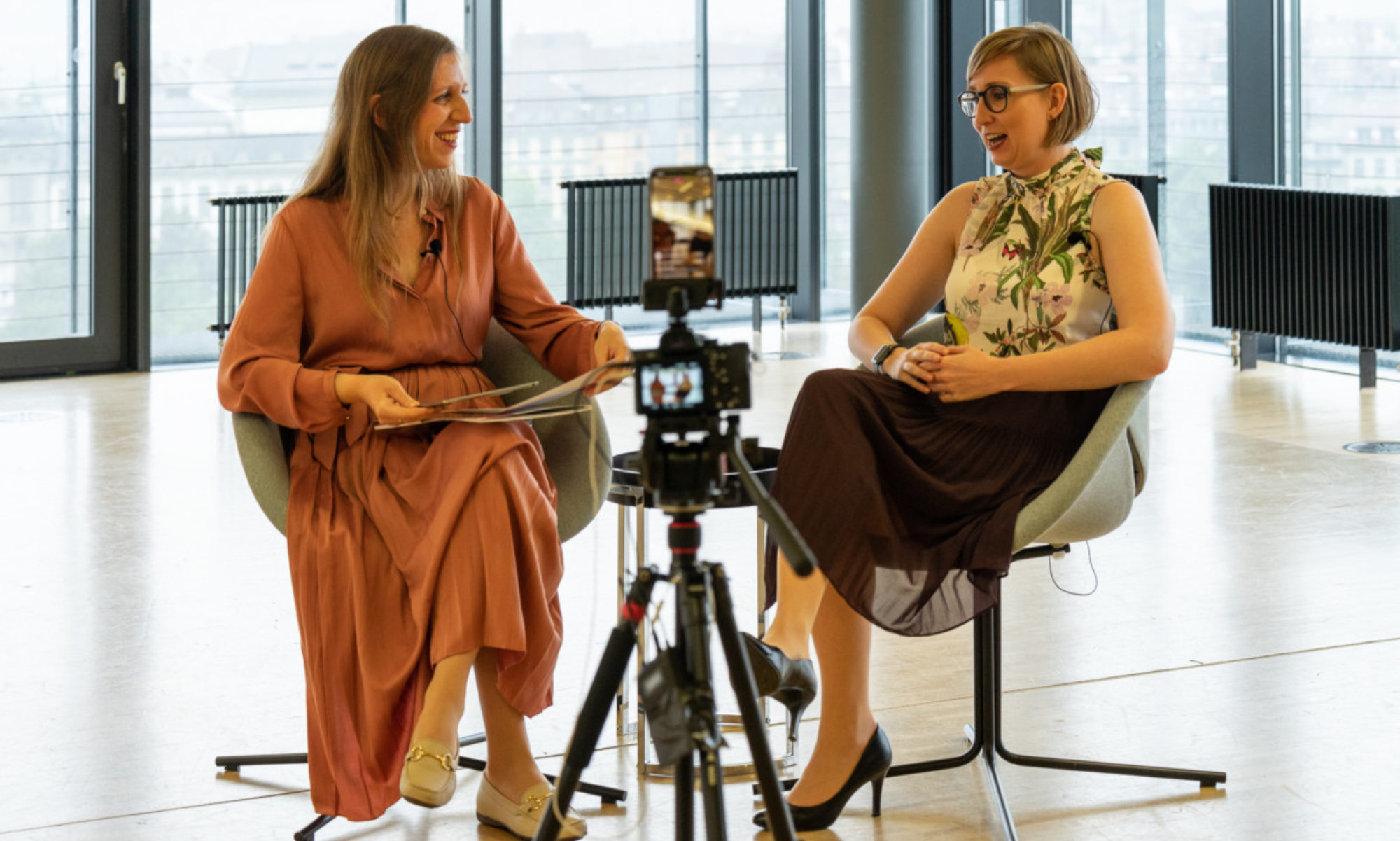Over the past seven weeks, the event industry has experienced a rapid digital transformation. From working from home to shifting communication and meetings online and hosting virtual events.
Up until the COVID-19 outbreak, only a few event agencies were ready for online events. However, very quickly, everyone had to adapt because it was the only possible option. When businesses reopen, things will never return to where they were before, and online events will significantly increase.
We are not prepared for online. We know how to monetise live events, but the same rules don’t apply to the virtual environment. Online requires rethinking current business models and creating new revenue streams.
To learn more about business models of online events, we interviewed Bogdan Maran, Founder at Visual Hive, about what event planners can do now to adjust their business models to online. Bodgan is an experienced international photographer and videographer who, after working with Splento, has now founded Visual Hive. His passion has always been how to maximise the value of visual content. In addition to creating visual content, the company focuses on collecting and analysing data around it. It looks at artificial intelligence, the blockchain and how to measure live spending. They are building a sponsorship engine that matches brand and event audiences, such as at mass-participation sports, and how to maximise revenue and interaction in terms of creating a bespoke online experience. The second company where Bogdan is a co-founder, AMMP, is a production company that examines strategy, production, delivery and analytics. They also (due to event cancellations related to COVID-19) pivoted to online event production and broadcasting, but were already well prepared for this and very quickly hit the ground running, helping their existing customers to pivot to online events.
What online component does your current event business model include?
We look at events from two perspectives. Our first aim is to help our clients go digital. We’ve had this approach for physical events. We strongly believe that live is an experience, and we see visual content as a teleporter; that is, taking this experience online. This is the first example of how we can use visual content to take the event digital; that can be, for example, a launch event, a conference or a series of conferences. What we are doing now is attempting to experiment in order to innovate, and this approach represents the creation of a new market.
Visual content means photos, moving photos, videos, graphics. Now, such visual solutions are increasingly important. Video is top in terms of priority.
There is a perception that you need to meet ‘YouTube high-end expectations’, where we go and watch the high-end content on YouTube and movies, but it costs a significant amount of money. But you don’t need to do it. You have to be strategic, smart, creative and fast. If you had to be fast before, and we believe in live and live interaction and targeted content within minutes, now that’s significantly further in terms of speed—it’s nanoseconds now that your content needs to go live.
We are now initiating a webinar series and podcast interviews focused on experimentation and innovation during this time. We will also be launching a series about how to communicate better using visual content. For example, when having an online interview, both parties must have the same microphone/sound quality and the same lighting in order to have a good experience, and that is what we train people to do.
Do you think that online events can be as profitable as live events? Yes/no? Please explain.
Yes, 100 percent. I don’t think that anyone who says differently understands what’s happening. At this point, if we just take the short future, we didn’t want to monetise online events, because the events industry is highly conservative. However, at this point, we’ve created a market where everyone is a broadcaster—you’ve done Instagram live, Twitter chats, podcasts—you’re a broadcaster by definition. Everyone who hasn’t done it yet must start tomorrow. There are going to be some negative experiences, but out of that, you’ll have a very healthy market. Even now, after how many years of holding events, we still have bad events, but there’s a tremendous number of nice events, and that’s where we are going. So, online events are going to become profitable and add significant value, even when we look at this period (which I think is going to be short) in terms of research and development for new revenue streams. Therefore, when we return to the hybrid model, we can add that value, and it will still represent a substantial asset for us.
How can #eventprofs make their online events attractive for sponsors? What arguments/data/testimonials etc. are required to make a strong case study?
Sponsors will be delighted with online events regardless of whether or not they are hybrid. You need to have a community to build an event, and this happens online or physical. Online, you’re not restricted by the physical barrier of a venue, so you can go even broader. Doing so means that you need to go more into details in terms of creating the experience, but you have data—online means data. We perceive content as a huge barrel of data. We can study emotions, language, brands, understand images and brands in a video etc., and this data can be transformed into sponsorship assets.
Don’t think of content as what you see. Think how you use it and how you share it. This is also data and good for sponsors. I think it’s more valuable from a sponsor point of view to go to a digital event rather than a physical one.
Sponsorship placement can involve logo placements, links back to the articles, shout outs to sponsors—everything that has an image can be branded if you do it correctly. I personally view it as a value exchange. If I give you something of value as the audience, I associate this value with the image of a sponsor—that represents content that can be sponsored.
Sponsorship revenues will become multiples of the content. Because you have the ‘live recording’ part of the content and then repackage that into something further, the lifetime value of that content can be sponsored ‘live’ by one brand and sponsor everything afterwards as well with other brands.
Would you pay to participate in an online event? If no, why and if yes, what price would you be ready to pay for an online event?
In the past three weeks, I’ve primarily been involved in online events and webinars for several reasons. I love to do my research to understand what people are currently doing. I also wanted to experience from the other side how that feels and works because it differs to experiencing a piece of content at home when your kids are around rather than in a conference room. I also made it for education, one of the top three reasons for people attending events. I consider that there are many ways that we can get through this in the next few weeks and transform everything into digital events.
Because I’ve been working remotely for several years now and managing teams from six different countries, I’m used to this—it’s natural. What struck me is how I react when I don’t like it, when something doesn’t meet my expectations. When the production value/sound is bad or something goes wrong, you can feel it, and you detach very quickly. You’re just one click away—you don’t need to take a bus to go somewhere else.
How is it possible to overcome the challenge of content length and ensure that the audience stays on and maintains their engagement over one hour?
I don’t think that there’s a magic wand, but this is linked to value exchange. How much do you pay for an event? We are very scared of the short attention spans that everybody has online.
The monetary value I will pay for an online event is approximately 100 GBP for a large-volume corporate production and about 30–35 GBP for individuals because it’s hard in this period, and we’ll learn more as we have more data. However, the more an individual will pay (it doesn’t matter how—it can be cash or their time), the more they will pay attention.
Does it mean that online events should be more expensive than live events?
I see the value proposition in terms of value exchange. If you give me something of value, I’ll give you something of mine, it can be attention or cash, give me something of value, and I’ll pay for it.
But now that everyone is doing it, how are we going to win an audience’s attention, and what’s the USP of an online event?
There was an answer on the #eventprofstalk Twitter chat by Victoria Matey from Matey Events suggesting to ‘go big or go niche’ because that means bringing highly specific value. I think that everything in between will not go away but will become more hybrid. But being niche means you offer value and you are in the top 10 of the best, and your value proposition is there.
We need to change how we examine ‘going big’ because our mindset is currently with the ‘physical event’. When you think of the Mobile World Congress, you picture that big event. It may be that the meaning of ‘going big’ will change over time; perhaps that will mean that the live event is there and then it expands to so many branches that it can go over for months after the ‘live’. Even at the World Mobile Congress, you can’t do everything in four days even if you want to. You go to these big events and eventually spend all your time in one hall; therefore, such live events require an online component to extend the discussion to those who are not able to be there physically.
What revenue streams can be applied to online events?
I think that there will be substantial possibilities in terms of revenue streams. We look at anything from pay per view; so, instead of paying 1,000 EUR to go to a large finance conference to see two keynote speakers, I can pay for the keynotes only. It can be pay for connection instead of pay for square meter because the square meter is gone. You also have traditional ticketing. The way I see it and what fascinates me is that when I go to a large conference, you usually have a specialist from this domain speaking on stage—you can monetise that (e.g., TED Talks and YouTube, BBC, CNN—they are all monetised). It can be correctly done, recorded, shared and available to access. You can have access bundles—what do you want to see? Why do I have to pay to see everything when you say, ‘I spend all my time in one hall (at the exhibition) because that’s where my business is.’ Hence, this process involves understanding and making personalised packages and streams. You might not have 1000 people paying 1000 GBP for tickets, but you will have 100,000 paying 100 GBP for a ticket.
Passive income will always be present; for example, charging for a recording because you’ve missed the live stream (e.g., if you mention a brand, it can be ‘sponsored by’ or ‘brought to you by.’) When you see your audience engaging with that content, then it’s easier to bring them something special because you understand behavioural patterns, and that way an affiliate link can be personalised and be more effective depending on what the audience is interested in.
How do you justify paying for an event when people such as Gary Vaynerchuck and Tim Ferris put all their content out for free? ‘I don’t think that anything is free’—those high-end speakers make a significant amount of money because everybody watches them; that’s their value proposition. You give me your time, and whoever is paying me, my sponsor, my affiliate, pay because I have this audience; that’s the value exchange. If now we say we put up a free event and have thousands of subscribers, we go to a large sponsor and monetise it so much that you can add a 0 to it as opposed to a live event, and you’ll see your revenue increase.’
Looking past coronavirus, do you think that online events will replace some of the live events? Please explain.
Yes and no. I think it will be a combination. There will likely be more online events appearing because we see the value of them—we had no choice but to experiment now—but I think hybrid events with people who know what they are doing will be substantially more valuable and more powerful. Then, everybody will adapt—we inadvertently created a new market. We are all broadcasters, and we therefore need to learn quickly to adapt, experiment and then go hybrid. Then, my child won’t ask me why we are flying so much, and can we save the planet? Our costs will then go down. Live is never going to disappear—we’ll need this connection, buzz and experience. But online is going to remain, short term at least. We’ll get through this, but perhaps in three weeks or eight weeks—we simply don’t know what’s going to happen, but I can guarantee that you can add 3–6 months of nothing in terms of travel afterwards. What are we going to do? Are we going to cancel everything? No—if you’re a speaker at my conference, I’ll send you a conference-branded microphone and will ensure that you’re going to be ‘live’ at my conference.


